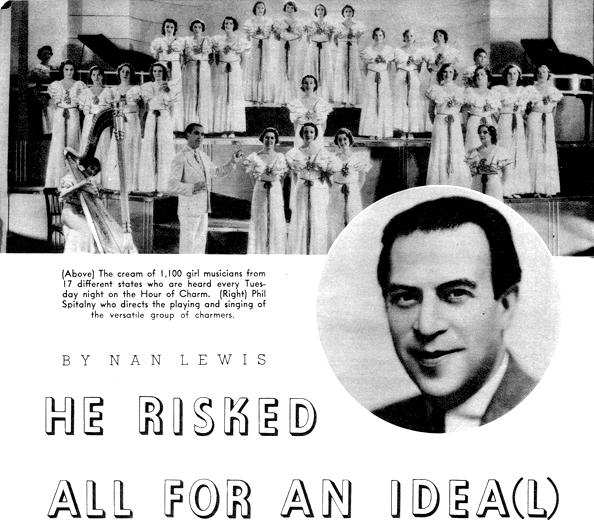Phil Spitalny was a very popular orchestra leader who experienced success as a recording artist, on the radio (his was the house orchestra on The Hour of Charm, a program hosted by Arlene Francis that aired on CBS and then NBC from 1934 to 1948), the movies (he appeared in a number of musical shorts and in two features), and even television.
But he achieved his biggest success based on what some considered a gimmick: Beginning in 1934, his orchestra (and later an added chorus) was composed entirely of women.
This profile, from 1935, captures Spitalny just months after he first launched his all-girl outfit, which he would lead successfully for twenty years. And if you read all the way to the end, there’s an historic epsiode of the Hour of Charm awaiting you. It’s the broadcast from the evening of Dec. 7, 1941—the day the Japanese attacked Pearl Harbor. The sound quality’s not ideal, but we think you’ll agree it’s well worth a listen.


